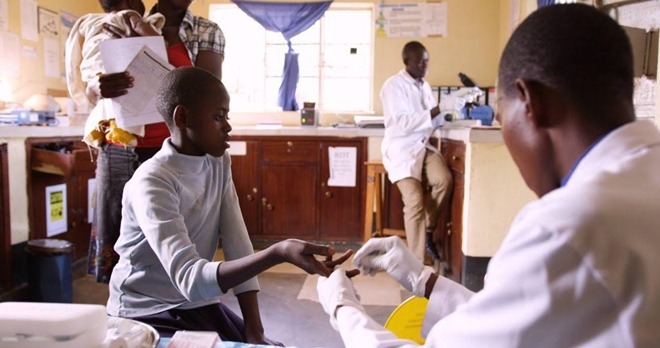Microsoft Philanthropies donates $1 billion in cloud computing resources
- Microsoft Security Intelligence Report Volume 22 is now available
- Microsoft kicked off Microsoft 365
Justin Spelhaug - General Manager, Microsoft Philanthropies said: "So how we're going to triple the number of nonprofits we reach with the transformational power of the cloud, to more than 300,000, over the next three years. We will do that because they want to build on the inspiring work nonprofits have done, using technology in innovative ways, over the past 18 months. Medical Teams International (MTI) is a great example".
In Uganda, which faces one of the worst refugee crises in the world today, MTI provides medical care to 1 million patients a year. Its staff used to rely on paper records. But since its care providers generate about 10 million medical records each year, it was nearly impossible for the nonprofit’s healthcare professionals to sort through mountains of paper to quickly find potentially lifesaving trends in the data.
 |
|
A refugee receives a medical checkup at a clinic in Uganda. Thanks to its cloud-powered app, Medical Teams International can now upload patient notes from this visit, compile it with other patient data, and analyze it for trends that could indicate an upcoming outbreak. |
Today, MTI uses a new app, built on Azure donated by Microsoft Philanthropies, to revolutionize the way it works. The app, designed by Cambia Health Solutions, has dramatically increased the speed and accuracy of diagnosis and treatment. “When we create a system that allows a doctor to move through patients more quickly, to provide better care, we’re honoring the dignity of the people who are coming and needing care,” Taylor says. Perhaps even more important, health-care workers can now identify and stop infectious diseases like malaria before they become outbreaks.
Nowaday, Microsoft Philanthropies are working to help more nonprofits around the world more fully leverage the power of the cloud. Too many nonprofits have been left behind in the digital revolution that’s reshaping business and society. According to a 2017 Digital NGO Member Survey by NetHope, most nongovernmental organizations reported they do not have a comprehensive digital strategy. Many have a strong desire to adopt the latest technology, but struggle to envision, design and deploy technology to optimize their missions. Nearly half of nonprofits say their infrastructure is barely keeping up.

